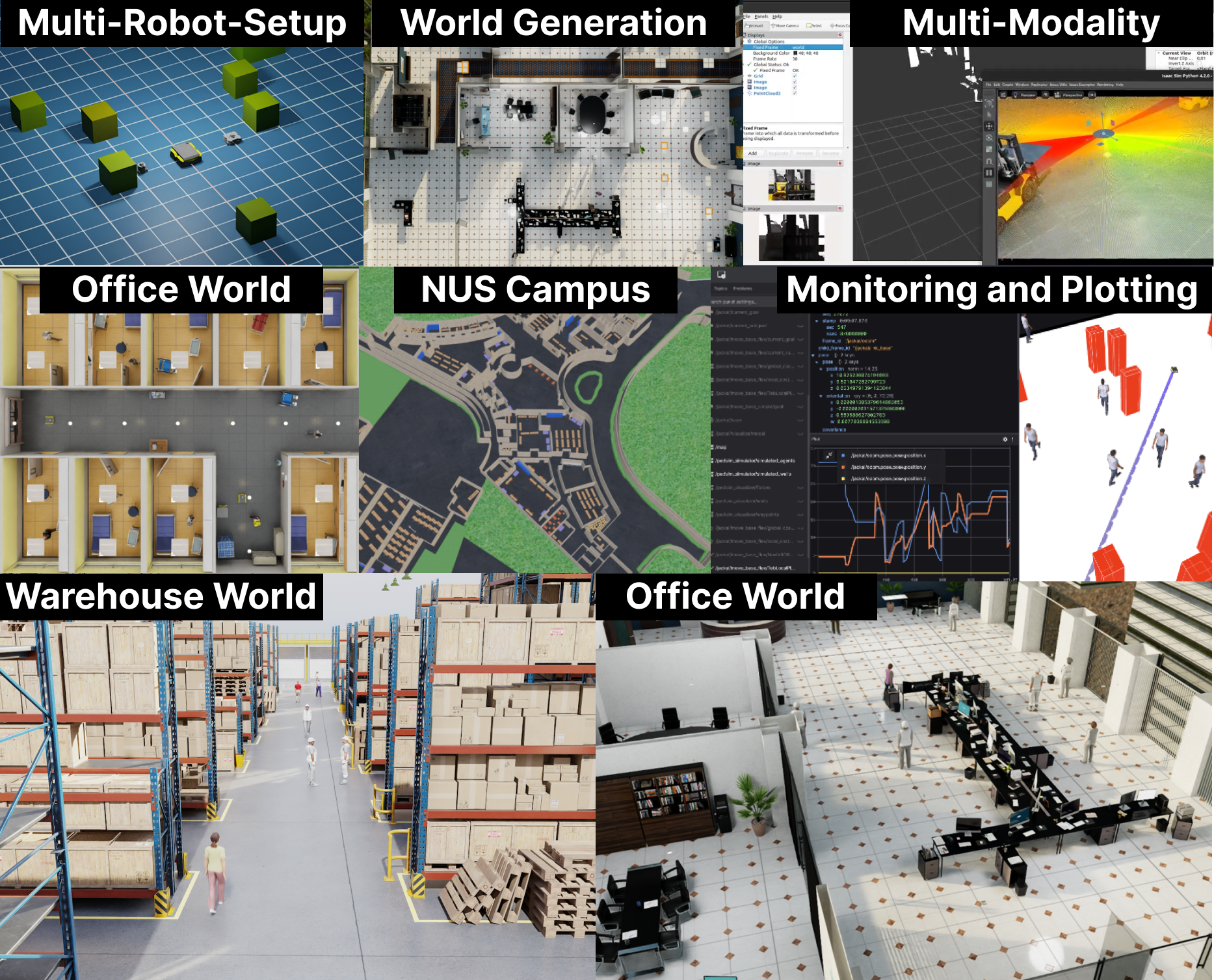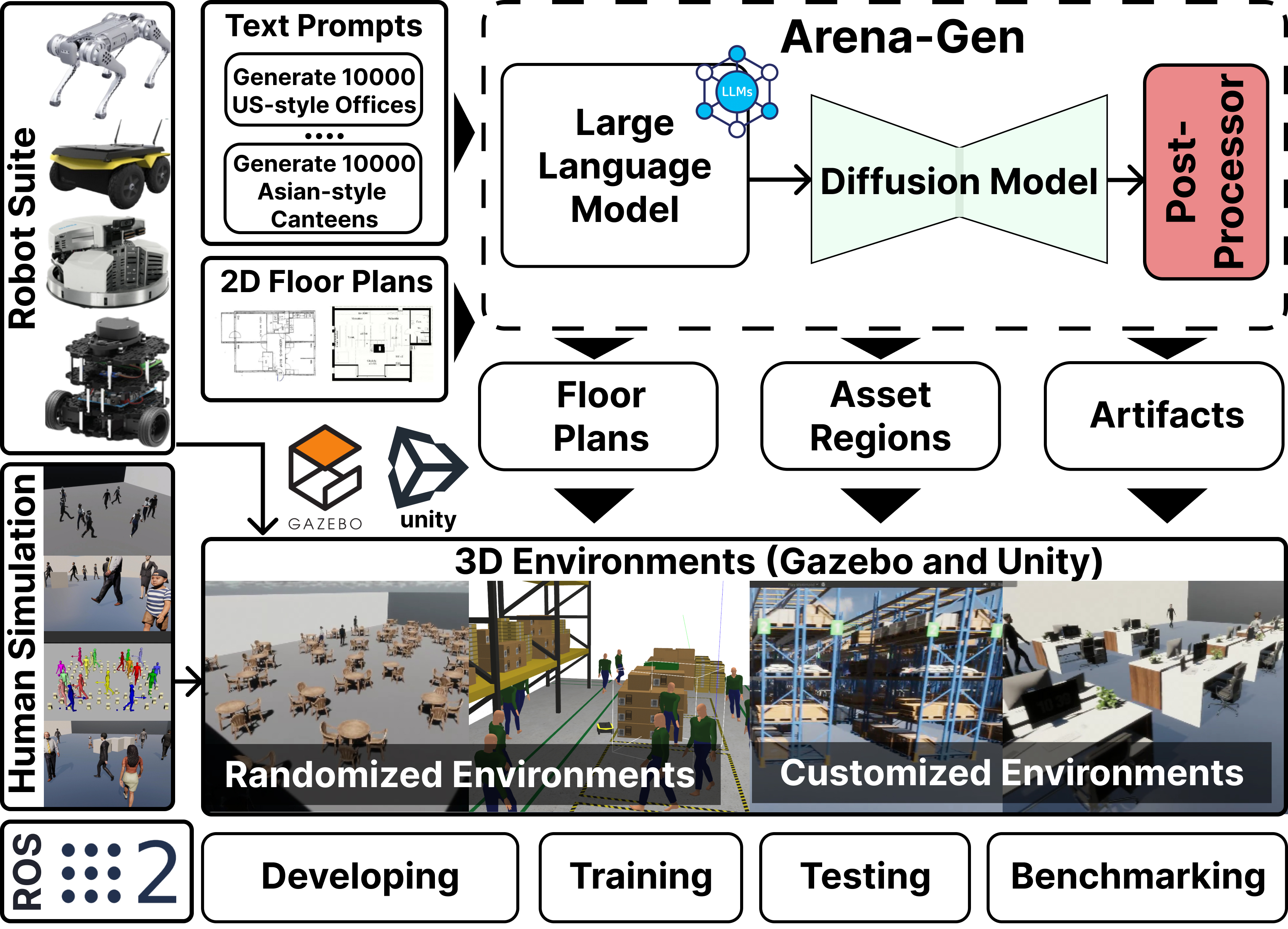Arena 3.0: Advancing Social Navigation in Collaborative and Highly Dynamic Environments, Linh Kästner★, Volodymyir Shcherbyna★, Huajian Zeng, Tuan Anh Le, Maximilian Ho-Kyoung Schreff, Halid Osmaev, Nam Truong Tran, Diego Diaz, Jan Golebiowski, Harold Soh★, Jens Lambrecht, Robotics: Science and Systems (R:SS)
Links:
Societal issues like declining birth rates and a skilled worker shortage make the integration of robotics into social spaces increasingly paramount. To ensure safety and effectiveness, navigation approaches must be extensively tested in realistic simulators before deployment into real settings - especially in crowded environments. The Arena platform fills this gap with its comprehensive simulation platform and extensive functionalities for development, testing, and benchmarking of novel navigation methods in social environments.
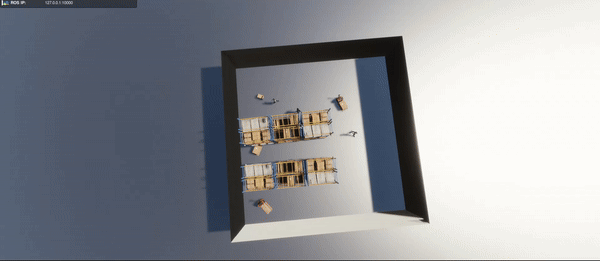
It features diverse robot kinematics, over 20 state-of-the-art planners, and realistic human behavior simulations. With the third iteration we have added a number of social force models such as the PySocial Force or Deep Social Force model, which can be plug-and-played. A core novelty of the pltform is its abstraction over three different simulators: Flatland 2D, Gazebo, and Unity. The new world generator, which can generate randomized worlds for training and testing purposes can thus be applied on all three simulators simultanously (see Figure 1)
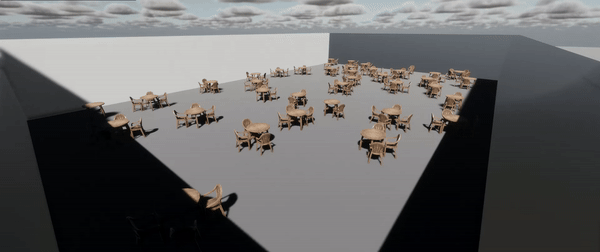
Arena 3.0 also features a large array of preexisting world replicas such as the NUS Com3 campus, industrial warehouses, canteens, offices, industry halls, and many more. Using our companion webapplication Arena-Web (RSS 2023), users can generate and develop their own worlds and customized scenarios for training and testing social navigation approaches.
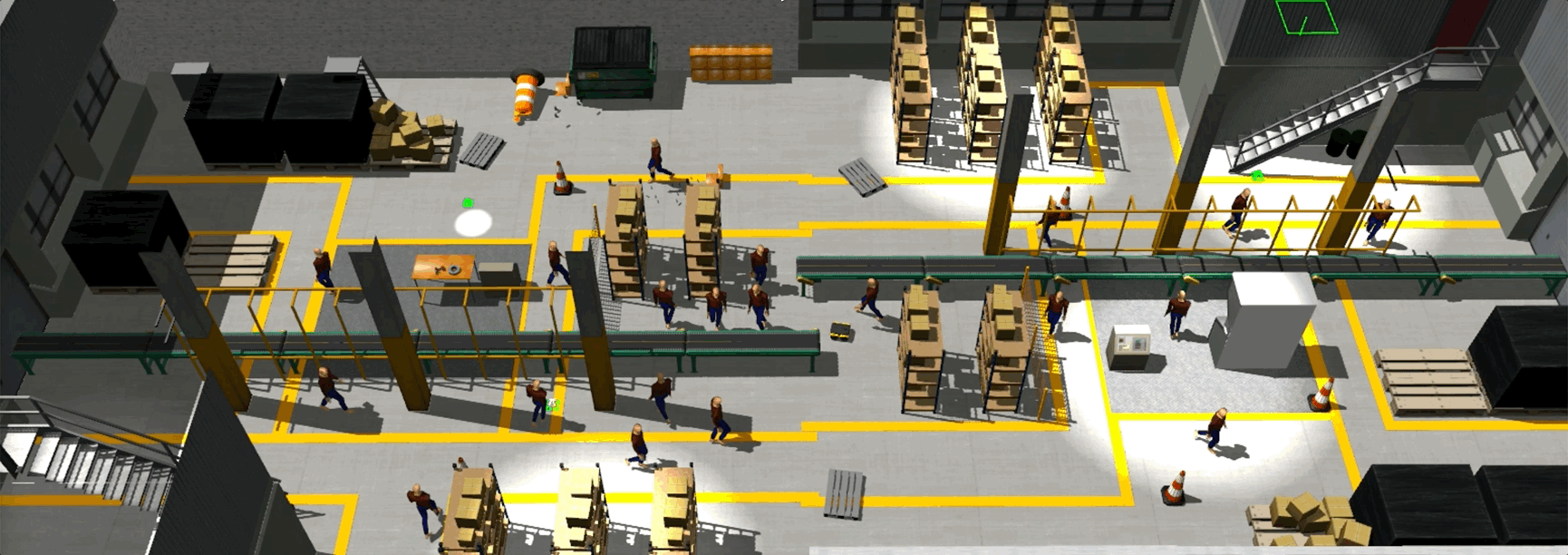
The platform and parts of its functionalities or approaches developed within Arena have been published in more than 8 papers in top-tier robotics conferences such as ICRA, IROS, RSS, and RA-L so far - and more is to come! Currently, we are working on the fourth iteration of Arena aiming for ICRA and IROS 2025. If you wish to be part of that effort, dont hesitate to contact us! Modules for research could include: development of social navigation approaches using learning, generative AI for world generation, computer vision for human tracking, multi agent reinforcement learning, web development, and many more.
Resources
You can find the paper here. Check out our repository here on github
Citation
Please consider citing our paper if you build upon our results and ideas.
Contact
Currently, there are a number of exciting projects in collaboration with national and international research and industrial institutions ongoing. If you would like to work with us on one of these projects e.g. for your undergraduate or graduate thesis, please contact us! Basic knowledge in ROS, Python and/or C++, and interest in Robotics are required. If you have questions or comments, please contact Author.

